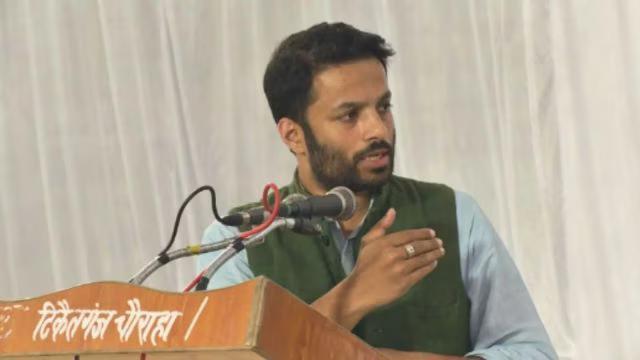
Ashoka University Prof Can’t Speak About the Cases Against Him: SC
In a recent development, the Supreme Court has extended the interim bail of Ali Khan Mahmudabad, a professor at Ashoka University, but with certain conditions. The court has made it clear that while there is no impediment to his right to speech and expression, he cannot post anything online about the cases against him.
Ali Khan Mahmudabad had approached the Supreme Court after the Delhi High Court had rejected his plea seeking directions to the Centre and the Delhi Police to take action against him for allegedly spreading anti-India propaganda online. The professor had claimed that he was being targeted for his opinions and that the cases against him were an attack on his freedom of speech.
The Supreme Court has, however, refused to intervene in the matter, saying that the professor’s right to speech and expression was not being curtailed in any way. The court observed that the professor was not being stopped from expressing his opinions, but he was being asked not to post anything online about the cases against him.
The court’s observations are significant in the context of the growing debate about freedom of speech and the limits of that freedom. While the professor’s right to express his opinions is sacrosanct, it is also important to recognize that there are certain limits to that freedom.
The cases against Ali Khan Mahmudabad relate to his alleged involvement in spreading anti-India propaganda online. The Delhi Police had lodged a case against him under various sections of the Indian Penal Code (IPC) and the Information Technology Act. The professor had claimed that the cases against him were an attempt to silence him and that he was being targeted for his opinions.
The Supreme Court’s decision is a significant setback for the professor, who had hoped to get relief from the court. The court’s observations, however, suggest that while the professor’s right to speech and expression is not being curtailed, he is being asked to exercise that right responsibly.
The court’s decision is also significant in the context of the growing debate about fake news and propaganda on social media. While the professor’s right to express his opinions is important, it is also important to recognize that there are certain limits to that freedom.
The cases against Ali Khan Mahmudabad relate to his alleged involvement in spreading fake news and propaganda online. The Delhi Police had lodged a case against him under various sections of the IPC and the Information Technology Act. The professor had claimed that the cases against him were an attempt to silence him and that he was being targeted for his opinions.
The Supreme Court’s decision is a significant setback for the professor, who had hoped to get relief from the court. The court’s observations, however, suggest that while the professor’s right to speech and expression is not being curtailed, he is being asked to exercise that right responsibly.
The court’s decision is also significant in the context of the growing debate about the limits of free speech. While the professor’s right to express his opinions is important, it is also important to recognize that there are certain limits to that freedom.
In conclusion, the Supreme Court’s decision to extend Ali Khan Mahmudabad’s interim bail with certain conditions is a significant development in the context of the growing debate about freedom of speech and the limits of that freedom. While the professor’s right to express his opinions is important, it is also important to recognize that there are certain limits to that freedom.
Source:






